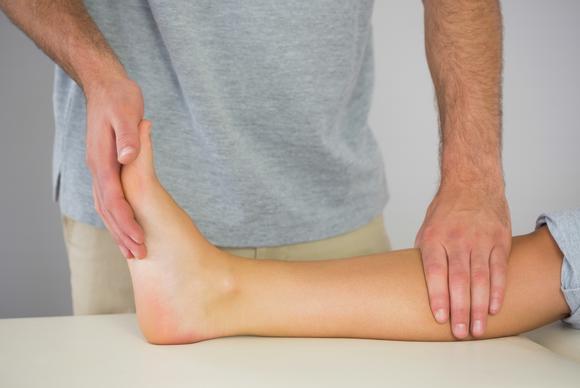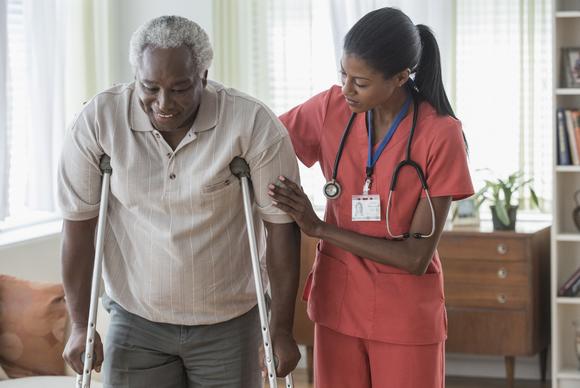View Providers

Insights from the Bone and Joint Experts
Whether you have ongoing backaches or sustain a sudden sports injury, orthopedic specialists are the ones who relieve your pain and help you get back to normal life. But what do they want you to know before you enter the exam room? Here’s the inside scoop, directly from bone and joint docs.

1. “I need to know how you really got hurt.”
So you slipped in the bathroom instead of sliding into home plate. It’s no big deal—and your doctor needs the truth to treat you. Brian C. Halpern, MD, a sports medicine physician, adds, “If you want to tell your friends a different story, we can make up something good. But don’t be embarrassed with us.”

2. “Your story is far more important than your MRI.”
Your words give your doctor about 90% of the information he or she needs. “Imaging is very helpful, but only 2% of the time does the MRI alone tell you what’s wrong,” Dr. Halpern says. In fact, abnormalities seen on a scan may be entirely unrelated to your pain.

3 . “Sometimes you don’t actually need to see us.”
“Some people rush to the doctor with every ache and pain,” says Joel S. Buchalter, MD, FAAOS, FACS, a professor of orthopedic surgery. But most minor sprains, strains, and overuse injuries, such as tendinitis, can be treated with rest, ice, and over-the-counter anti-inflammatories. “If you come to see us, that’s what we’re going to tell you to do.”

4. “But other times, you wait far too long to come in.”
Do see your orthopedic specialist for aches that last more than three or four weeks. Call sooner if you also have weakness or numbness, if pain keeps you up at night, if you hear a pop after a fall or hit, or if you can’t put weight on your leg.

5. “Come in with questions—but not too many.”
Prepare for your appointment by writing down your questions in advance. But your doctor won’t be happy if you arrive with a 20-page list. “Narrow it down to a couple of important questions. If you have more later, you can always follow up by email or phone,” Dr. Halpern says.

6. “Please wear something that lets us see your injury.”
If your knee hurts, wear loose pants or bring shorts; if it’s your shoulder, choose a tank top. Your doctor needs to see the painful area and the skin around it to make a diagnosis—and you’ll be more comfortable in your clothes than in a paper gown.

7. “Your expectations have to be appropriate.”
As Dr. Buchalter says, “You are not a professional athlete.” You likely can’t run or jump like a pro—nor will you recover from major surgery in three weeks like a major-leaguer. “That guy is 25 years old and like a stallion; you’re 45, you weigh 250, and you haven’t exercised for your whole life,” Dr. Buchalter explains. “You need to have a reasonable expectation for recovery.”

8. “Stop listening to your friends and family.”
You may know someone who was treated for the same condition. For better or worse, don’t assume his or her treatment plan or outcome will be the same as yours. “Every patient has an individualized set of circumstances that can’t be applied or compared to another,” says Scott G. Rainey, DO, an orthopedic spine surgeon.

9. “If I want to know what another doctor said, I’ll ask.”
It’s smart to seek a second—and even third—opinion. But when you go to a new specialist, don’t repeat everything you’ve been told. “Knowing what Dr. A, Dr. B, and Dr. C said doesn’t give the next doctor an original look at your problem,” Dr. Halpern says.

10. “You probably don’t need surgery.”
“As a spine surgeon, I make my living operating on necks and backs. However, only people with a surgical diagnosis and who have exhausted all other treatment options are offered surgery,” says Dr. Rainey. That’s far less than 2%, he adds. Dr. Buchalter does about one surgery per 20 patients.

11. “Surgery is the easy part.”
“Most people are worried about the operation, but surgery is our job. The real challenge for patients is in the recovery,” Dr. Buchalter says. Your doctor can explain in more detail how long your recovery should take. Patients usually do best when they put aside adequate time to focus on getting better.





